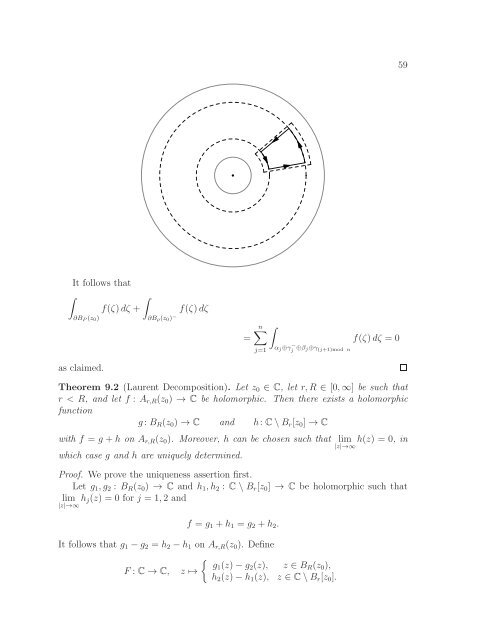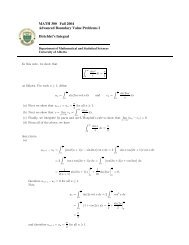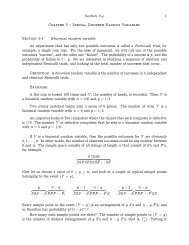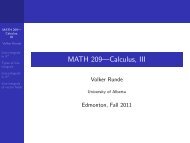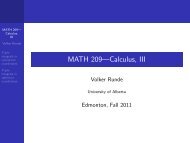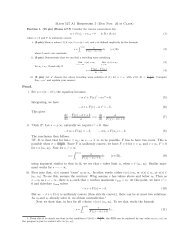Math 411: Honours Complex Variables - University of Alberta
Math 411: Honours Complex Variables - University of Alberta
Math 411: Honours Complex Variables - University of Alberta
You also want an ePaper? Increase the reach of your titles
YUMPU automatically turns print PDFs into web optimized ePapers that Google loves.
It follows that<br />
� �<br />
f(ζ)dζ +<br />
∂BP(z0)<br />
as claimed.<br />
∂Bρ(z0) −<br />
f(ζ)dζ<br />
=<br />
n�<br />
�<br />
j=1<br />
αj⊕γ −<br />
j ⊕βj⊕γ (j+1)mod n<br />
f(ζ)dζ = 0<br />
Theorem 9.2 (Laurent Decomposition). Let z0 ∈ C, let r,R ∈ [0,∞] be such that<br />
r < R, and let f : Ar,R(z0) → C be holomorphic. Then there exists a holomorphic<br />
function<br />
g: BR(z0) → C and h: C\Br[z0] → C<br />
with f = g +h on Ar,R(z0). Moreover, h can be chosen such that lim h(z) = 0, in<br />
|z|→∞<br />
which case g and h are uniquely determined.<br />
Pro<strong>of</strong>. We prove the uniqueness assertion first.<br />
Let g1,g2 : BR(z0) → C and h1,h2 : C \ Br[z0] → C be holomorphic such that<br />
lim hj(z) = 0 for j = 1,2 and<br />
|z|→∞<br />
f = g1 +h1 = g2 +h2.<br />
It follows that g1 −g2 = h2 −h1 on Ar,R(z0). Define<br />
F : C → C, z ↦→<br />
� g1(z)−g2(z), z ∈ BR(z0),<br />
h2(z)−h1(z), z ∈ C\Br[z0].<br />
59


